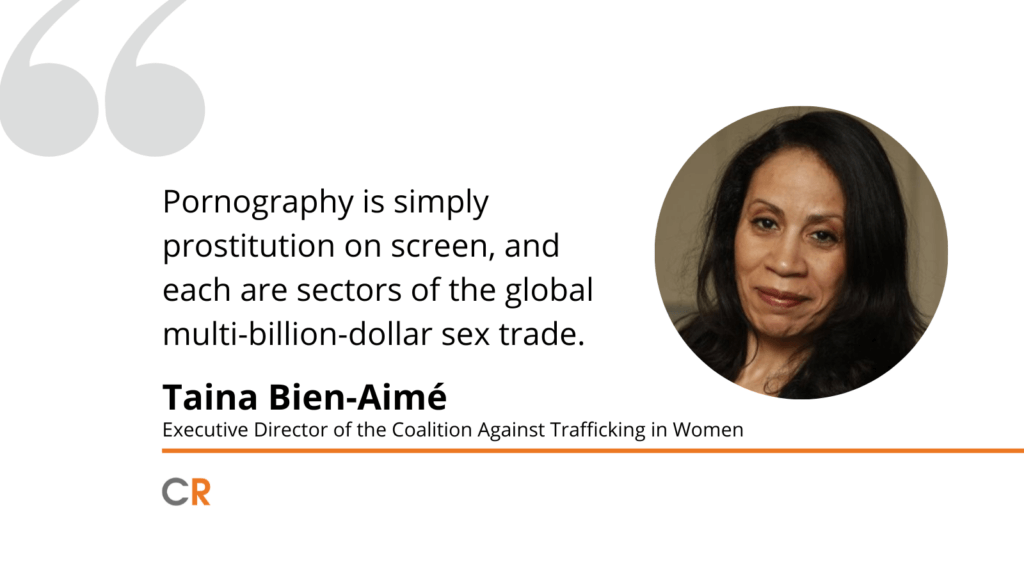Pornography’s Effect on the Global Sex Trade: An Interview with Taina Bien-Aimé
Pornography’s Effect on the Global Sex Trade: An Interview with Taina Bien-Aimé
For 30 years, Taina Bien-Aimé has been defending the rights of women and girls. She is the Executive Director of the international organization Coalition Against Trafficking in Women (CATW), which is dedicated to ending trafficking in women and girls and commercial sexual exploitation as practices of gender-based violence and discrimination. For 20 years prior, Taina was involved with Equality Now, working to promote the global human rights of women and girls.
In this interview with Culture Reframed, Taina highlights how pornography impacts prostitution and the global sex trade and shares the changes she’d like to see to address these issues and protect women and girls.
Taina is a featured speaker at our upcoming event, “Pornography and Prostitution: Connecting the Dots.” Join us on December 6 to hear her presentation, “The Sex Trade as a Global Harmful Cultural Practice: Targeting Sex Trafficking, Violence Against Women, and the Demand for Prostitution Worldwide.” Register here.
In your work, how do you see prostitution and pornography linked? How does pornography help drive both prostitution and the global sex trade?
The literal translation of pornography from Ancient Greek is the depiction (graphos) of a female slave in prostitution (porne). Pornography is simply prostitution on screen, and each are sectors of the global multi-billion-dollar sex trade: the perpetrators are the same, the exploiters and profiteers are the same, and the suffering of those exploited in both sectors is the same. They drive each other.
How does our society — including political representatives, academic institutions, and media — normalize prostitution? How does this influence sex trafficking/the global sex trade? How does pornography play into this normalization?
Our society is built on patriarchal systems and norms, meaning that our academic, cultural, legal, and political institutions devalue women and girls, rendering them second-class citizens. What still escapes us is that when some human beings are not deemed worthy of equality, they can become objects for sale, exploitation, and profit, including in pornography. And our culture applauds both.
How does the global sex trade thrive on racism and discrimination? How is it connected to colonialism?
Colonialism has scaled up systems of racism, discrimination, and prostitution at such catastrophic levels that every corner of the globe is still suffering its consequences six centuries later. The sex trade and myriad other systems of oppression originate from colonialism. One only needs to look at which populations are bought and sold in it (mostly women and girls of color) and who its profiteers are.
What are the top changes you’d wish to see in the world related to pornography and prostitution that would enable us to begin to address these issues? What are the first steps to protecting the disenfranchised women and girls who are currently becoming victims of the sex trade?
The most important step is to bring sex trade survivors to the decision-making tables. They offer unique insight into pornography and prostitution as harmful cultural practices that destroy lives and make equality impossible to reach. Survivors can help change laws, and they have the power to demand that our governments conduct medical research on the pervasive injuries the sex trade unleashes with impunity.

